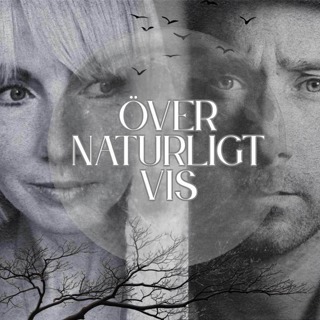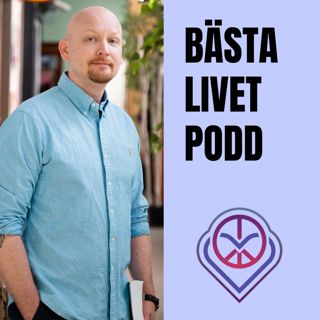![Mark Moskowitz: Within: What Going to Jail Taught Me About Teshuva [Teshuva 5/6]](https://cdn.podme.com/podcast-images/D79089FBEF78B78B9B1A2A8AFD27F6A1_small.jpg)
Mark Moskowitz: Within: What Going to Jail Taught Me About Teshuva [Teshuva 5/6]
This series is sponsored by our friends, Daniel and Mira Stokar.This episode is sponsored by our friends, The Aleph Institute.On this episode of 18Forty, we have a deeply moving conversation with Mark Moskowitz, an author, speaker, and coach, to talk about his search for meaning in federal prison. After being incarcerated for defrauding his investors, Mark found meaning and himself in the least likely of places. This conversation moves from the challenges of living meaningfully amidst pressures to perform your success to the challenging work of teshuva. Our episode with Mark also features Rabbi Sholom Lipskar, founder of Aleph Institute.In this interview, we discussed:—How does one find a sense of self when they are expected to be someone for other people?—How does someone start to veer towards crime, and how do they come back from a mistake of that magnitude?—What can we learn about teshuva from the experience of prison?Interview begins at 6:34.Mark Moskowitz is an author, speaker, and coach, who speaks about his search for meaning in federal prison. After being incarcerated for defrauding his investors, Mark found meaning and himself in the least likely of places. You can learn more about Mark on the profile on him at Aish.com, “Mark Moskowitz's Story: In Prison for Defrauding Investors, I Turned My Life Around.”You can pre-order his book, Within: How I Found My Happy and Authentic Self in Federal Prison, here (https://www.markjmoskowitz.com/offers/9jpH7Z2k/checkout) and use the coupon code 18FORTY to receive 20% off.References:The Six Pillars of Self-Esteem by Nathaniel BrandenReal Power by Dr. Dovid LiebermanJoe DispenzaThe Shawshank RedemptionWe'd like to thank our dear friends at the Aleph Institute for their help coordinating this episode. If you would like to be a part of the amazing work they do, especially in these days of Yimei din vrachamim - days of judgment and mercy - then you can head on over to https://aleph-institute.org/wp/ and donate to their annual matching fundraising campaign and help them reach their goal for the coming year. Their work is entirely made possible by caring people like you.Become a supporter of this podcast: https://www.spreaker.com/podcast/18forty-podcast--4344730/support.
28 Sep 20221h 48min
![Shais Taub: Teshuva of Innocence and Experience [Teshuva 4/6]](https://cdn.podme.com/podcast-images/D79089FBEF78B78B9B1A2A8AFD27F6A1_small.jpg)
Shais Taub: Teshuva of Innocence and Experience [Teshuva 4/6]
This series is sponsored by our friends, Daniel and Mira Stokar.On this episode of 18Forty, we have a wide ranging conversation with Shais Taub, a renowned Chabad scholar and author of the book God of Our Understanding: Jewish Spirituality and Recovery from Addiction, about the mechanics of teshuva. It's hard to put Rabbi Taub in a box. He is a candid speaker and an eclectic thinker who brings authenticity and honesty to otherwise formulaic topics. During our conversation we discussed:—What's the difference between teshuva of innocence and teshuva of experience?—What does Kafka have to do with teshuva?—Why did the Alter Rebbe, the first Rebbe of Chabad, call his work the Sefer of Beinonim, the book for people in the middle?Interview begins at 4:35Rabbi Shais Taub is a rabbi and author. He writes about Jewish spirituality, addiction, and mysticism, and is the author of God of Our Understanding: Jewish Spirituality and Recovery from Addiction. Rabbi Taub is a noted speaker, and he currently serves as scholar-in-residence of Chabad of the Five Towns. References:Franz Kafka's The TrialTanyaSoulWords.orgFranz Kafka's The TrialTanyaSoulWords.orgB’Rogez Rachem Tizkor by David BashevkinThe Trauma of Everyday Life by Mark EpsteinLaughing with Kafka by David Foster WallaceVidui HaTeshuvah by Tzemech Tzedek (Part 1, Part 2)Orot HaKodesh by Rav KookKabbalistic Writings on the Nature of Masculine and Feminine by Sarah SchneiderBecome a supporter of this podcast: https://www.spreaker.com/podcast/18forty-podcast--4344730/support.
20 Sep 20221h 28min
![Kayla Haber-Goldstein: Questioning the Answers: Rebuilding Your Faith [Teshuva 3/6]](https://cdn.podme.com/podcast-images/D79089FBEF78B78B9B1A2A8AFD27F6A1_small.jpg)
Kayla Haber-Goldstein: Questioning the Answers: Rebuilding Your Faith [Teshuva 3/6]
This series is sponsored by our friends, Daniel and Mira Stokar.On this episode of 18Forty, we have a frank conversation with author Kayla Haber-Goldstein about her personal, painful journey to find God. Kayla proudly describes herself as FFB/BT, a reference to her identifying as a ba’al teshuvah despite growing up in a religious, rabbinic home in Australia and Jerusalem.—How do you align Judaism to your life so that religious practice doesn’t feel like a burden?—How can Orthodox education be improved to encourage spiritual-seeking?—How can you make changes to your life while under intense social scrutiny?Kayla Haber-Goldstein is an interior designer living in New York. Born to a rabbinic family, Kayla set out to explore her own relationship with Judaism, resulting in her book, Questioning The Answers. Kayla is passionate about questioning the answers—and questions—of Judaism, in order to be consciously religious.Interview begins at 15:30.References:Questioning the Answers by Kayla Haber-GoldsteinCrash Course in Jewish History by Ken SpiroOrot Hatorah by Rabbi Abraham Isaac HaCohen KookBecome a supporter of this podcast: https://www.spreaker.com/podcast/18forty-podcast--4344730/support.
13 Sep 20221h 24min
![Antonio García Martínez: Optionality and Choosing Judaism [Teshuva 2/6]](https://cdn.podme.com/podcast-images/D79089FBEF78B78B9B1A2A8AFD27F6A1_small.jpg)
Antonio García Martínez: Optionality and Choosing Judaism [Teshuva 2/6]
This series is sponsored by our friends, Daniel and Mira Stokar.In this episode of 18Forty, tech entrepreneur Antonio Garcia Martinez discusses his powerful “Why Judaism?” essay series, chronicling his conversion to Judaism and his views on the deficiencies of secular liberalism. A formerly Orthodox man who was moved to change his life after reading Martinez’s essays chimes in.—What is the toll of a culture of optionality?—What is the value of unchosen commitments?—How does Martinez reconcile his deeply scientific worldview with Judaism?Interview begins at 10:21.Antonio García Martínez is a New York Times best-selling author and tech entrepreneur. He is a former product manager for Facebook, the CEO-founder of AdGrok, and a former quantitative analyst for Goldman Sachs. His book Chaos Monkeys: Obscene Fortune and Random Failure in Silicon Valley, an insider look into Silicon Valley, was a New York Times bestseller. Antonio reflected on his choice to engage with Judaism in a deeply thoughtful piece, “Why Judaism? On abandoning secular modernity.”References:Why Judaism? On abandoning secular modernity by Antonio García MartínezWhy Judaism?, part שני: On the question of God in modernity by Antonio García MartínezNineteen Letters by Rabbi Samson Raphael HirschThe Benedict Option by Rod DreherRethinking Sex by Christine EmbaSeven Types of Atheism by John GrayThe Sabbath by Rabbi Abraham Joshua HeschelBecome a supporter of this podcast: https://www.spreaker.com/podcast/18forty-podcast--4344730/support.
6 Sep 20221h 7min
![Rabbi Beryl Gershenfeld: What We Can Learn About Teshuva From Jewish Outreach [Teshuva 1/6]](https://cdn.podme.com/podcast-images/D79089FBEF78B78B9B1A2A8AFD27F6A1_small.jpg)
Rabbi Beryl Gershenfeld: What We Can Learn About Teshuva From Jewish Outreach [Teshuva 1/6]
In the first episode of our Teshuva series, R. Beryl Gershenfeld, one of the leaders of the Jewish outreach movement, joins us in talking about what we can learn about the process of transformation that occurs in Jewish outreach. - What can the Jewish world learn from Jewish outreach? - How do we engage in meaningful growth? This series has been generously sponsored by our friends Daniel and Mira Stokar.Interview begins at 15:25References: Sin•a•gogue: Sin and Failure in Jewish Thought by David BashevkinThe Road Less Traveled: A New Psychology of Love, Traditional Values and Spiritual Growth by M. Scott PeckSefiras Haomer: The Link Between Tushuva And Torah by Yaakov ElmanMan’s Search for Meaning by Viktor FranklAtomic Habits by James ClearDedicated: The Case for Commitment in an Age of Infinite Browsing by Pete DavisMesilas YesharimChovot HaLevavotOr HaTzafunAspiration by Agnes CallardBecome a supporter of this podcast: https://www.spreaker.com/podcast/18forty-podcast--4344730/support.
30 Aug 20221h 27min

Listener Questions
In this episode of the 18Forty Podcast, we listen to voicemails sent in by you, our listeners, and reflect on the community we have built beyond our conversations.- Which episode is the favorite, or least favorite, of 18Forty listeners?- Why did David Bashevkin get outraged about pagination? - Is “undoubtably” a word in the English language?Tune in to hear a conversation between Batman and the Joker, and other fun feedback. Voicemails begin at 7:24.References: “Portlandia”IFC YouTube channelMalka Simkovich: The Mystery Of The Jewish PeopleBnei Yissaschar by Tzvi Elimelech Spira of DinovTzidkas HaTzaddik by Rav Tzadok HaKohen of LublinOz VeHadar Mesivta Talmud“Show and Tale”“I Read This Over Shabbos”Jewish Mediation: A Practical Guide by Aryeh KaplanThe Birth of the Spoken Word by Dovid’l WeinbergIf You Were God by Aryeh KaplanTefillin by Aryeh KaplanWaters of Eden by Aryeh KaplanBecome a supporter of this podcast: https://www.spreaker.com/podcast/18forty-podcast--4344730/support.
23 Aug 202244min

Ari Koretzky: In Conversation with Dovid Bashevkin
Among the many questions we receive at 18Forty, there are some we find recurring: Who does 18Forty serve? What is its purpose? In this episode, 18Forty Founder Rabbi David Bashevkin reflects upon those questions—except he isn’t the one interviewing. Instead, Rabbi Ari Koretzky, host of the Jews You Should Know Podcast, interviews him.—What is the story of David’s personal religious development?—What were 18Forty’s greatest challenges and successes?—Where is it heading?Interview begins at 5:44.References: Jews You Should KnowSaturday Night Live – "Father-Son Podcasting Microphone""Rav Moshe Weinberger: Can Mysticism Become a Community?"The Bedwetter by Sarah Silverman"Journey to 18Forty: A Conversation with Mitchell D. Eichen""Malka Simkovich: The Mystery of the Jewish People""Dr. Ora Wiskind: How do you Read a Mystical Text?"Introduction to Love's Executioner by Irvin D. YalomBecome a supporter of this podcast: https://www.spreaker.com/podcast/18forty-podcast--4344730/support.
16 Aug 20221h 24min

On Loss: A Child
This episode is sponsored by our friends Victor and Jessica Kagan in honor of Rochel Mindel bas Noson Nuteh and Naftali ben Chaim Shraga Feivel.In this episode of the 18Forty Podcast, we talk to Mirlana Morris about the loss of her son, Donny, and perpetuating the memory of a loved one.Mirlana lost her son, Donny, in last year’s Meron tragedy when he was 19 years old. Mirlana speaks about choosing to live a life of emunah instead of being angry with God, and shares how she perpetuates the legacy of her beloved son. - Where does a mother find the strength to move forward after confronting a loss of such large magnitude? - How can one comfort the bereaved with sensitivity? - What does mourning have in common with Chol HaMoed and what does it teach us? Tune in to hear a conversation on love, loss, and moving forward. Interview begins at 12:21 Musical Credit: Im Eshkachech by Itzhak AzulaiReferences:Kedusha, Shabbos Davening“Mimkomcha” as sung at the funeral of Donny Morris“Donny Morris’ schedule”Daniel Ish Chamudot: A Parsha Companion in Bein Adam L'chaveiro in Memory of Donny Morris z”l by Yeshivat Sha’alvimLiving Emunah by Rabbi David Ashear“B’Yadcha” by Rinas AmchaBecome a supporter of this podcast: https://www.spreaker.com/podcast/18forty-podcast--4344730/support.
2 Aug 20221h 33min





















